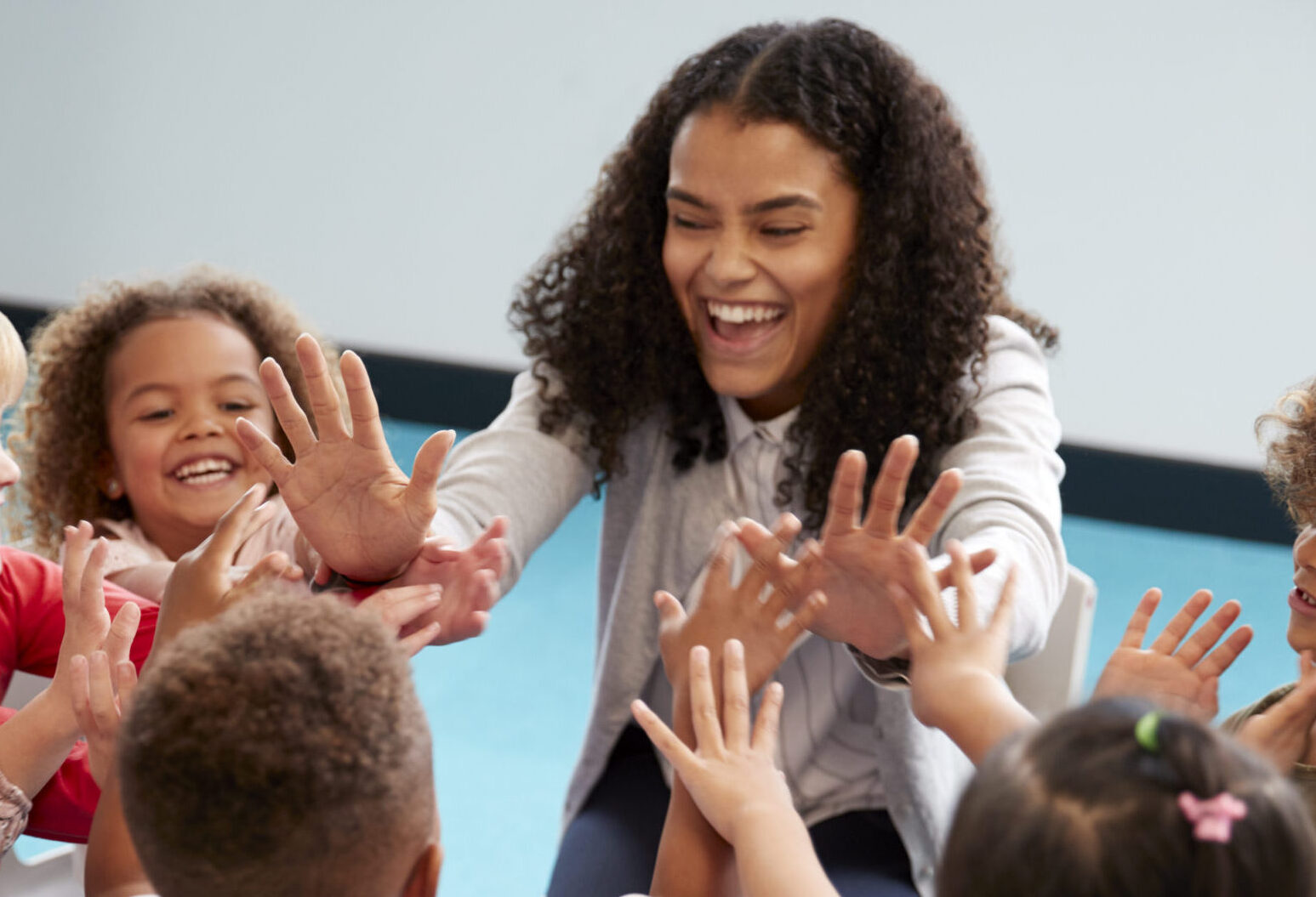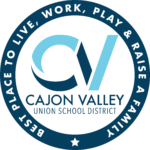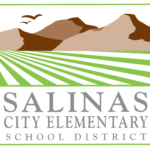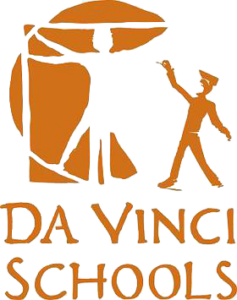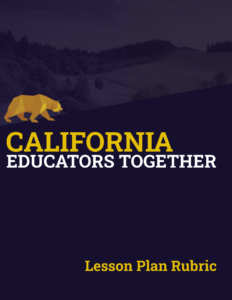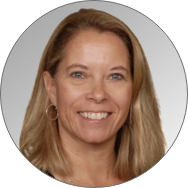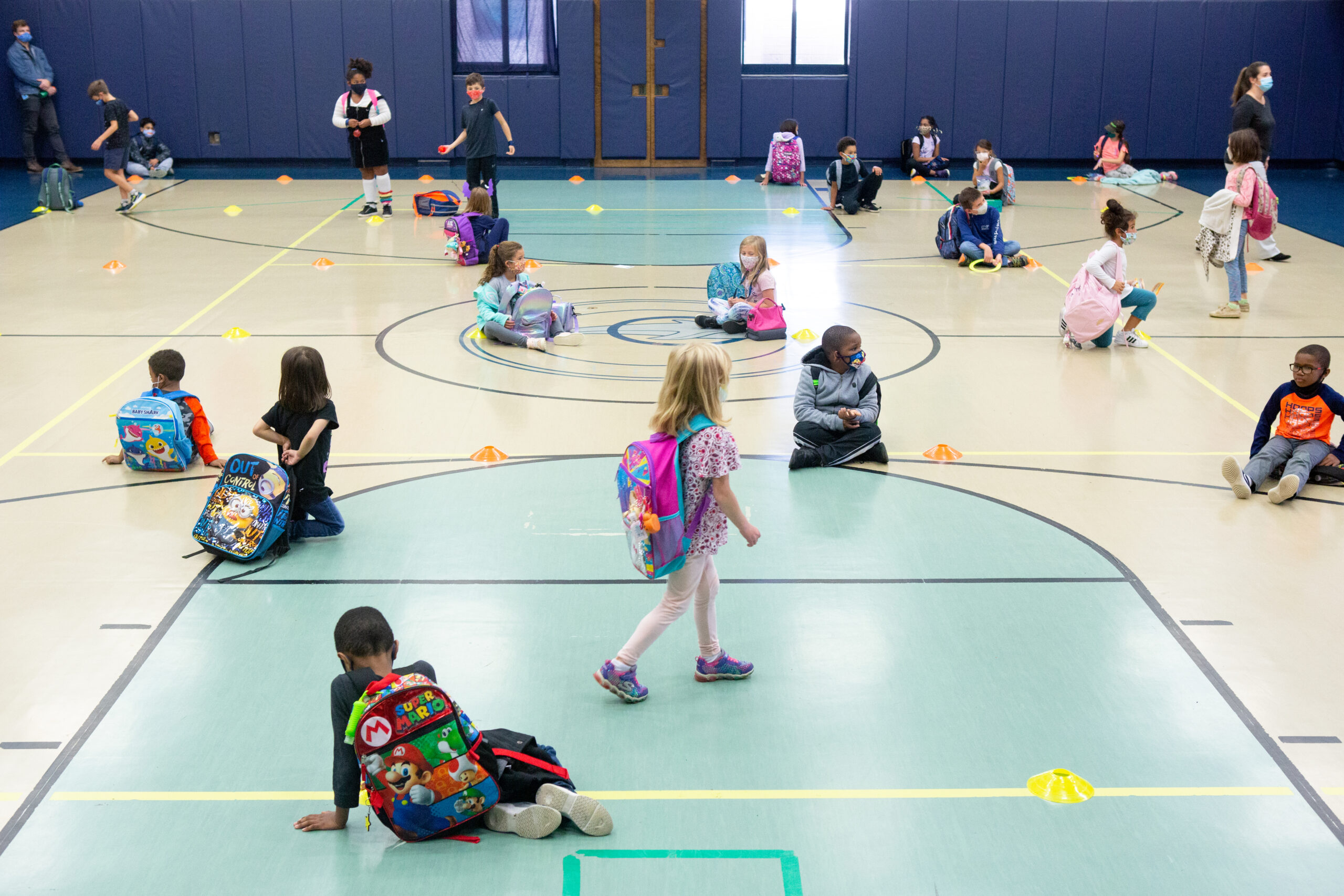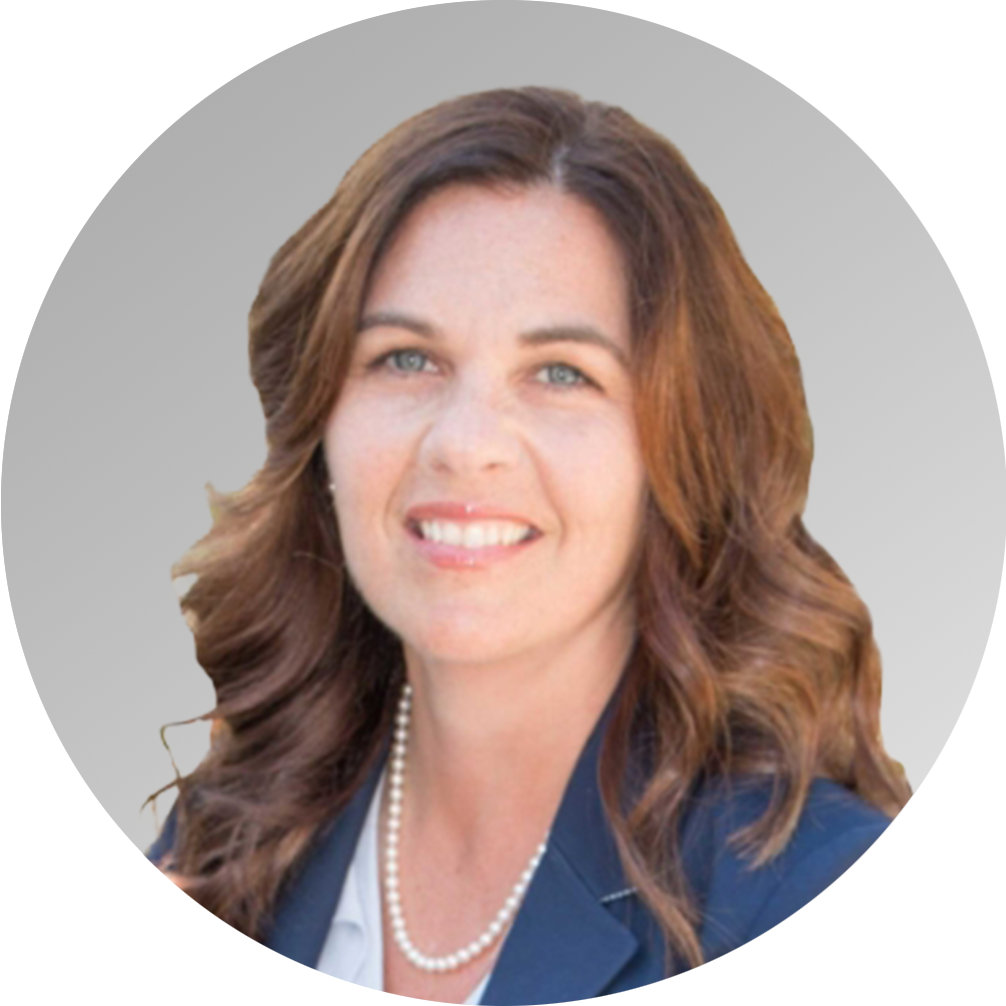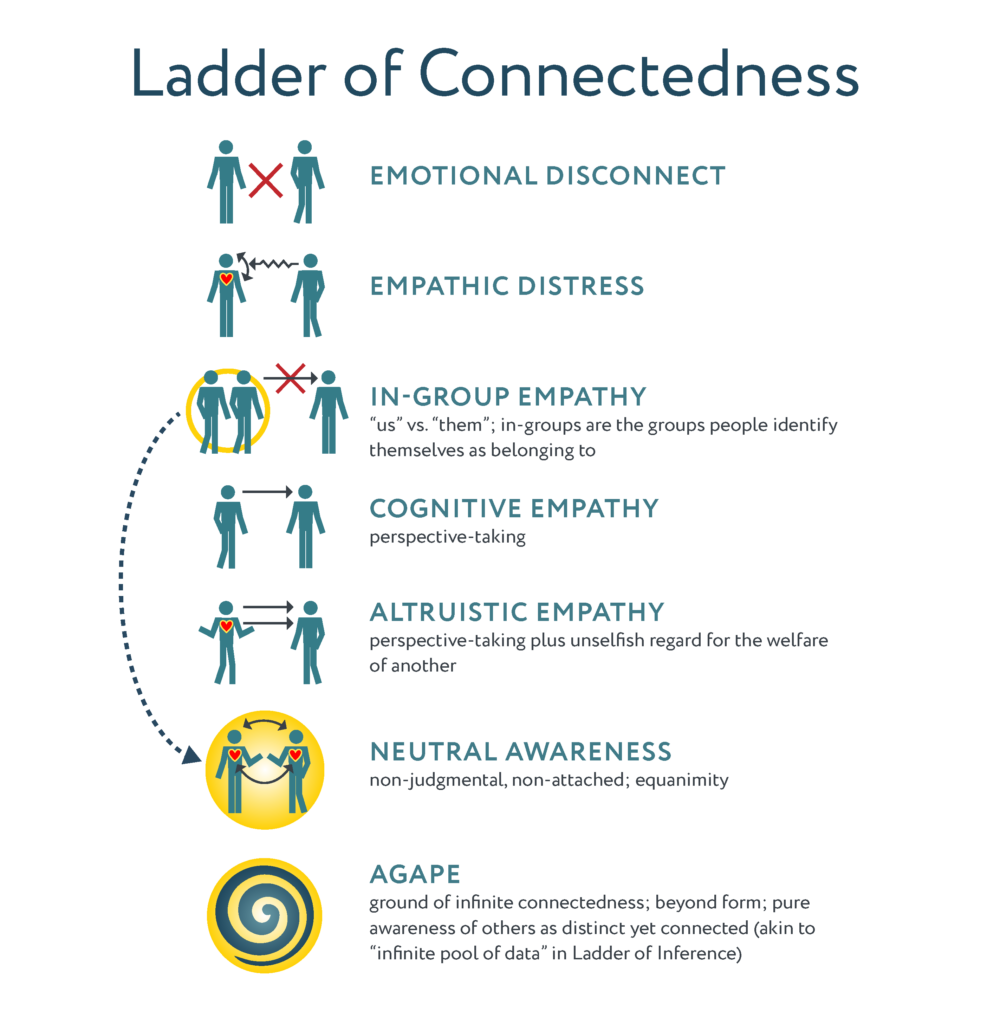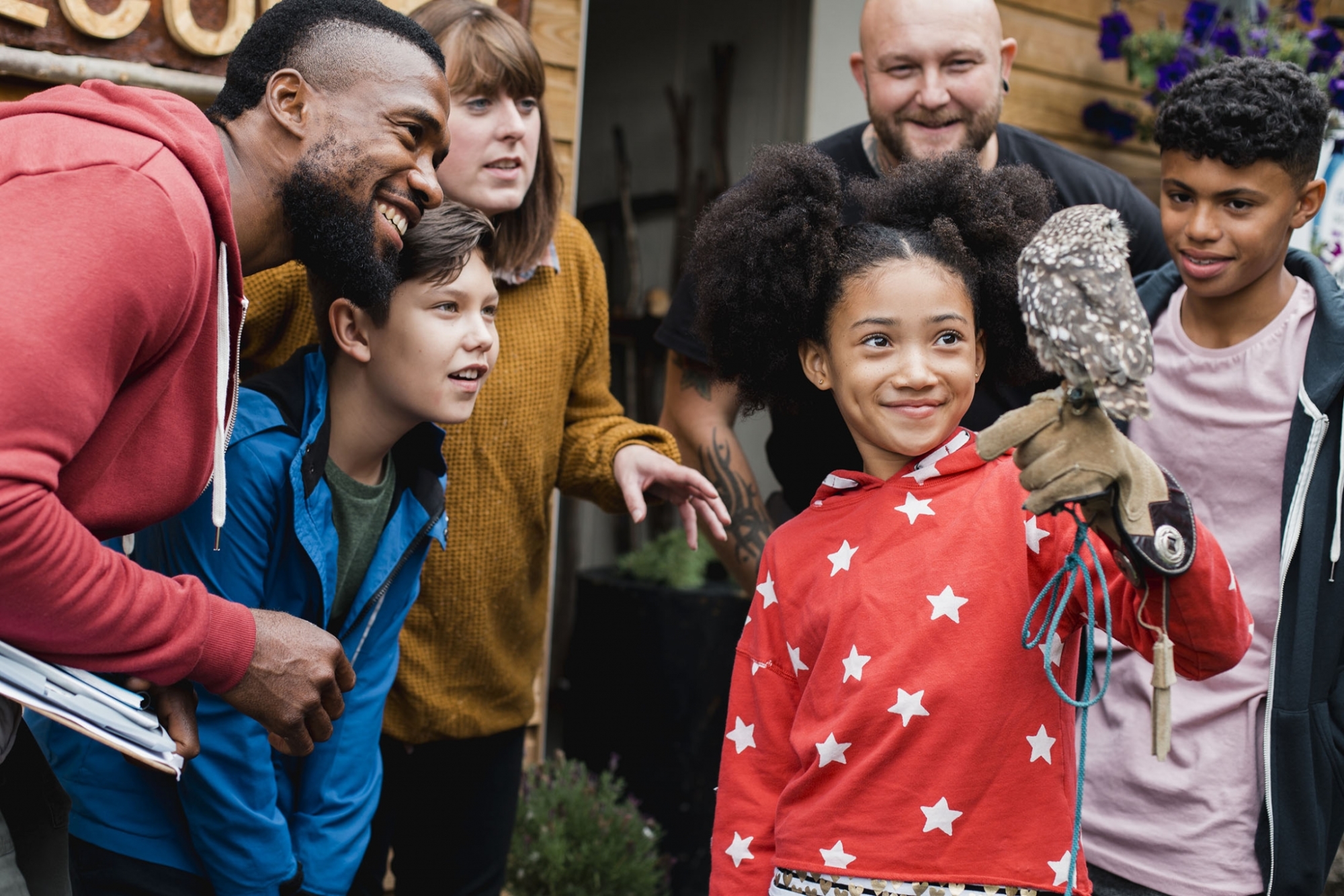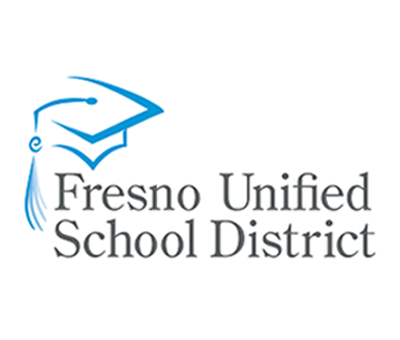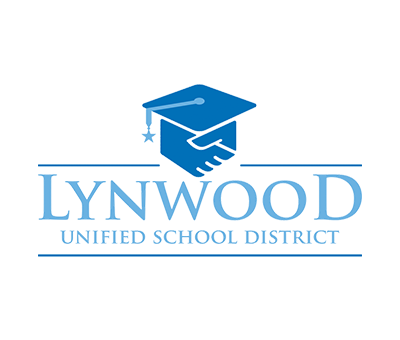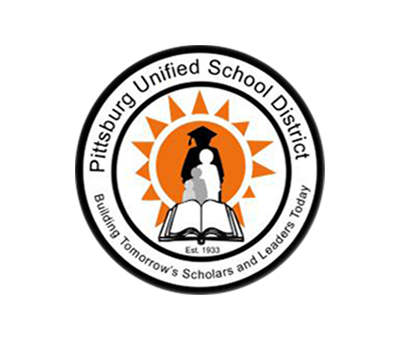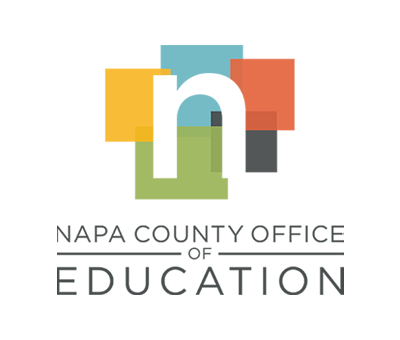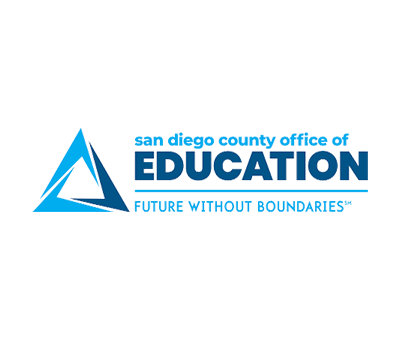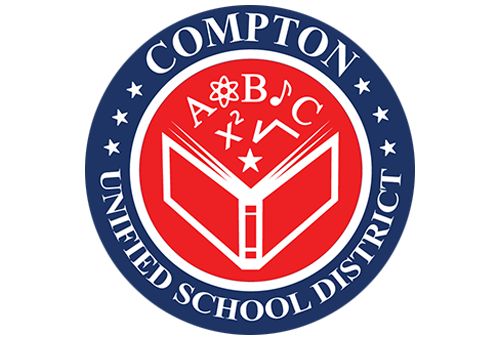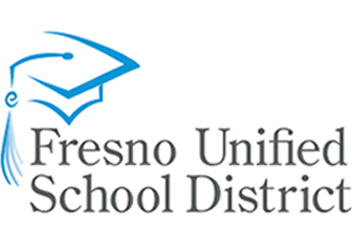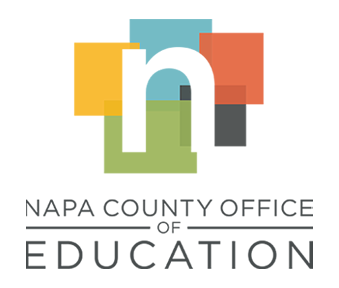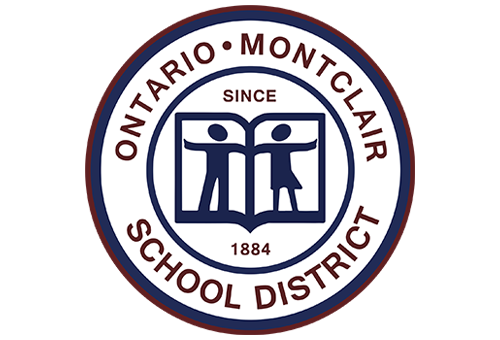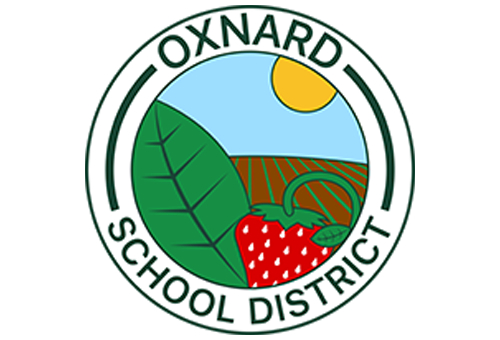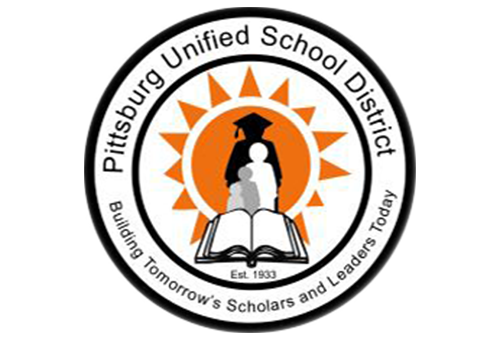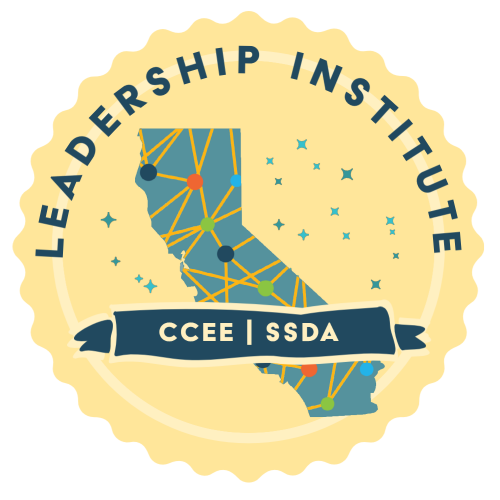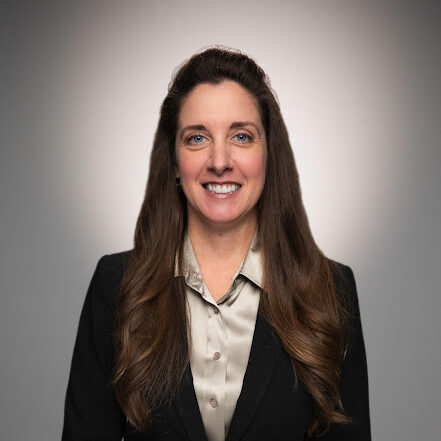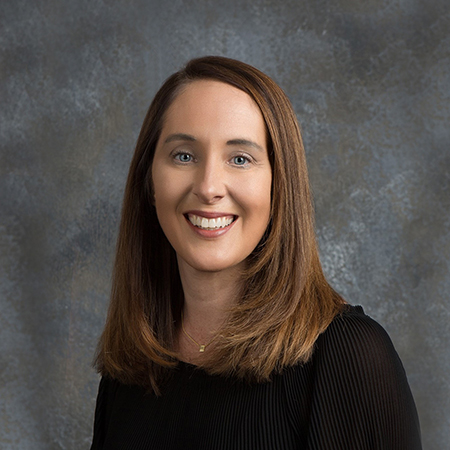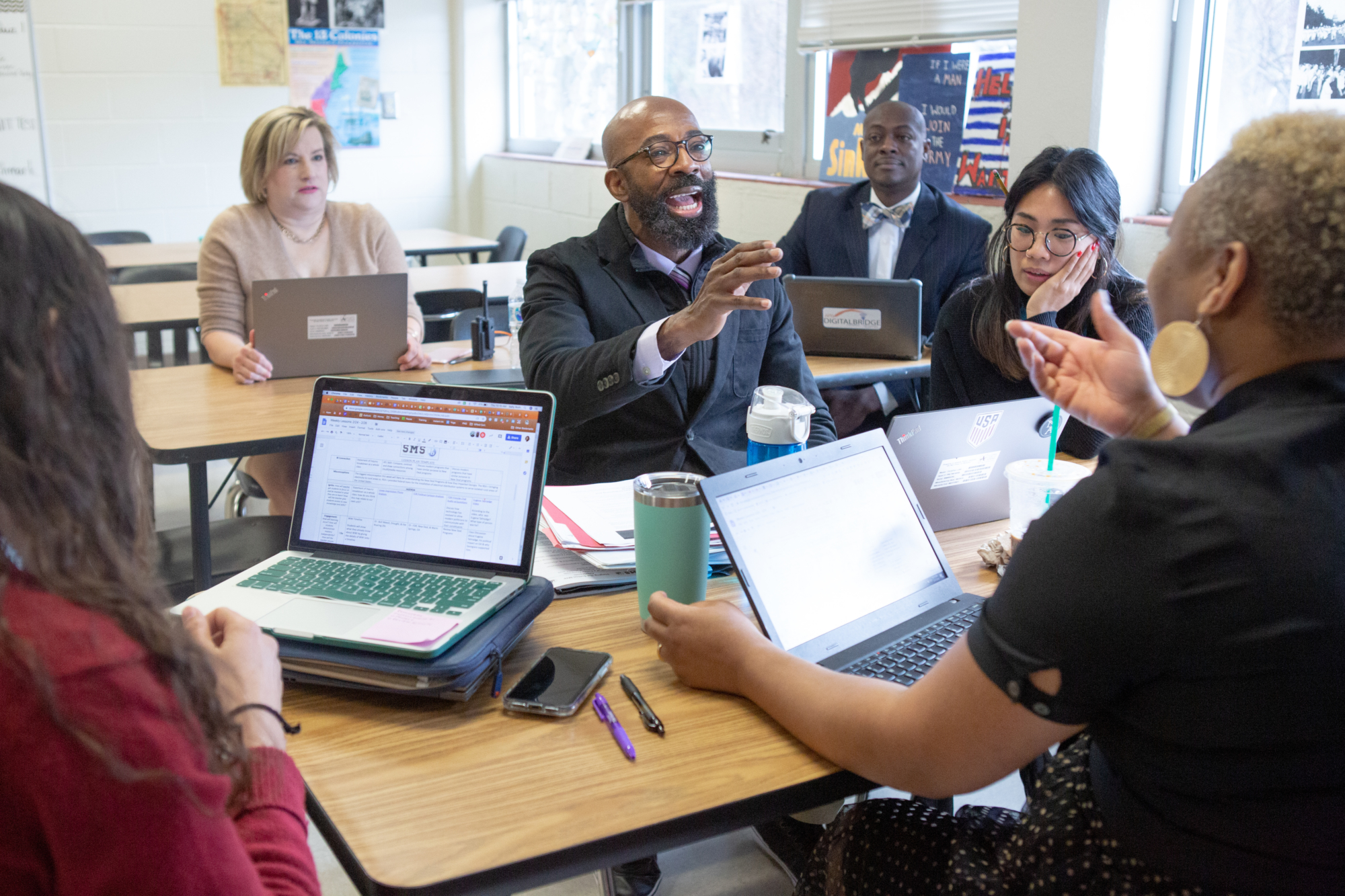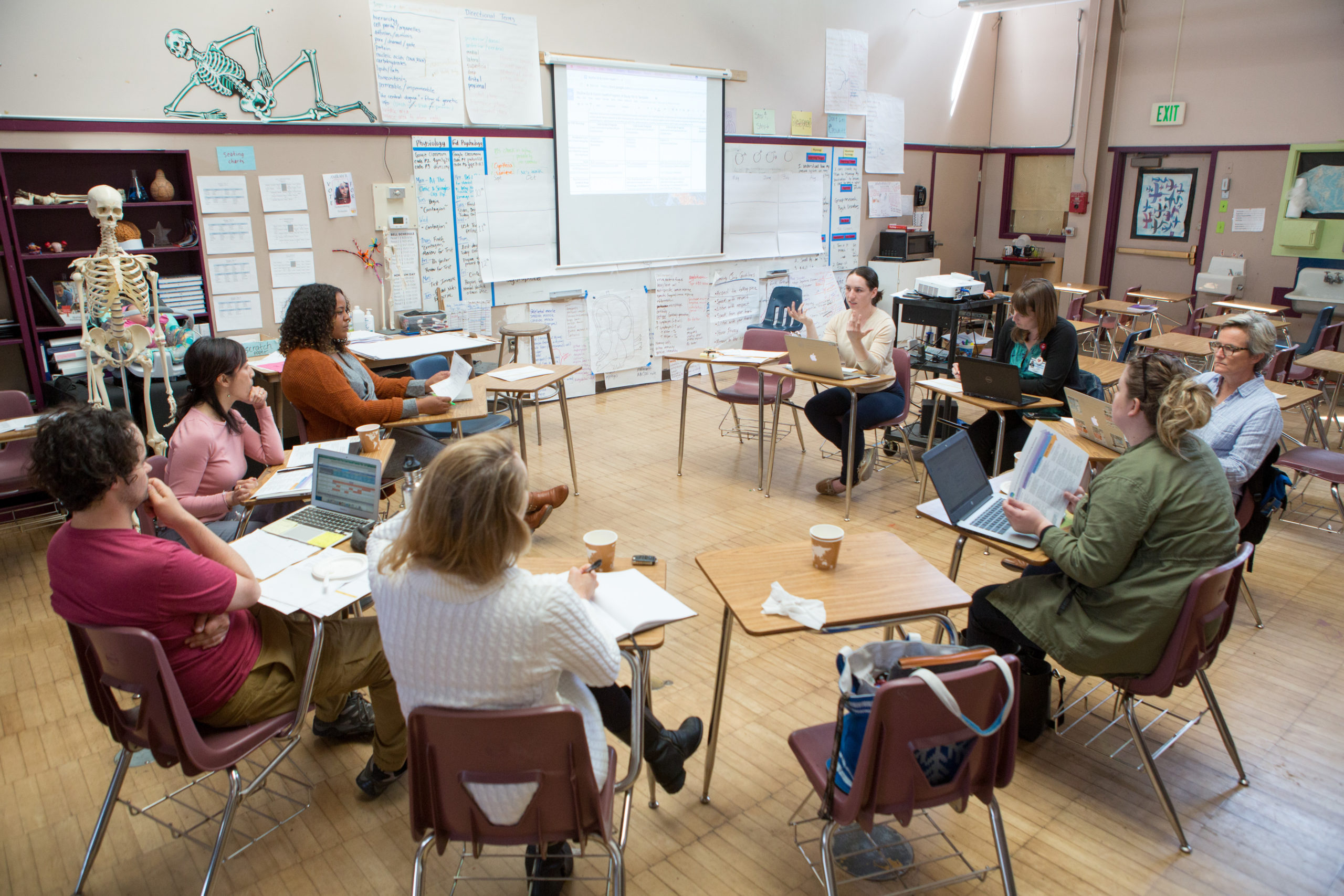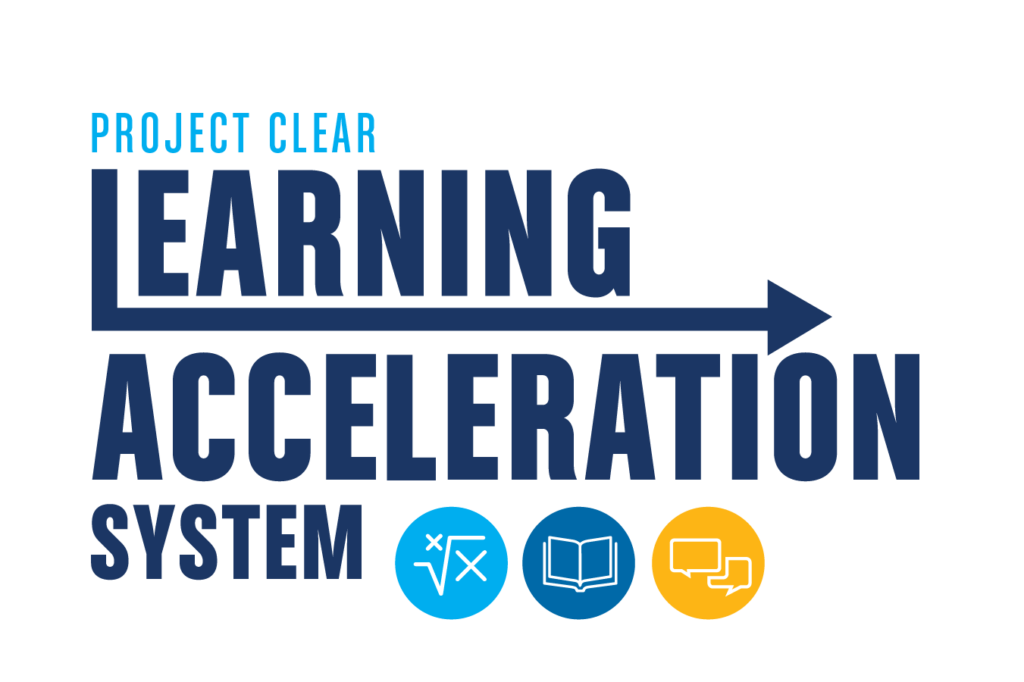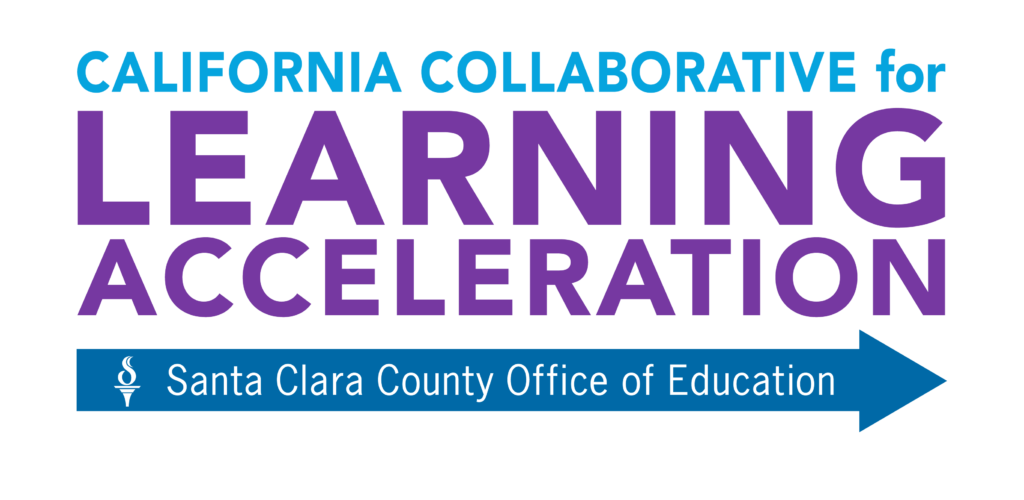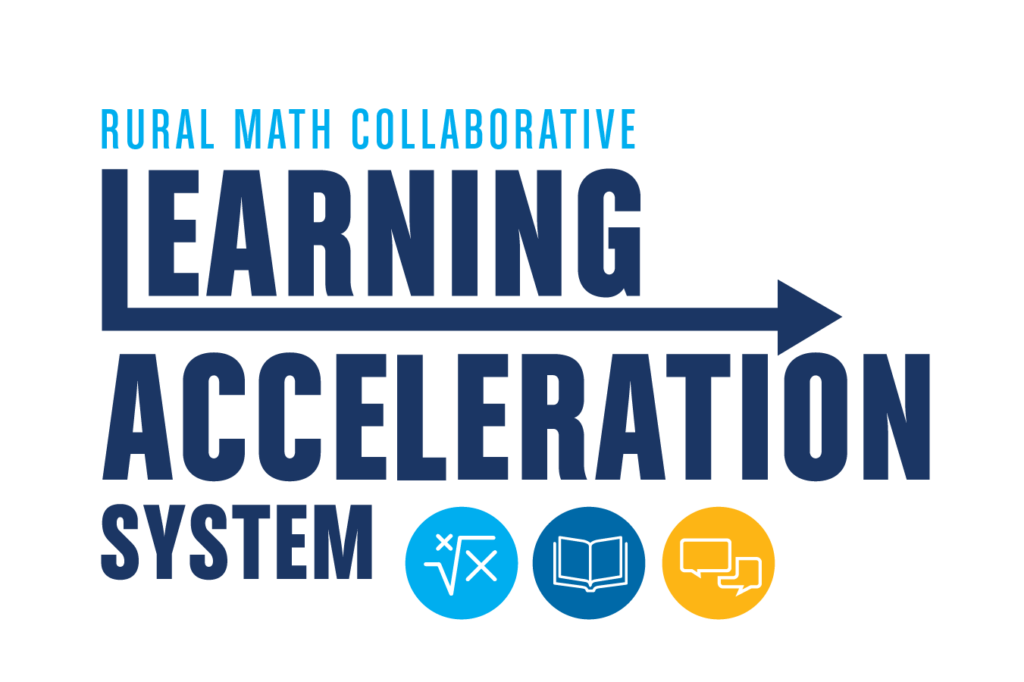News & Announcements
Earn a berkeley UTK Leadership Certificate!
Open to candidates currently in a Preliminary ASC or Clear ASC program, or who hold a Certificate of Eligibility
New opportunity for future school leaders: As California rolls out its Universal Transitional Kindergarten (UTK) program, 21CSLA is offering future school leaders a new opportunity to develop their skills and leadership capacity.
The UTK Leadership Certificate is a 4-unit online and synchronous program offered through UC Berkeley Extension (UNEX) and developed by the UC Berkeley-based 21CSLA, in partnership with the California Department of Education, State Board of Education, and California Collaborative for Educational Excellence. Those who complete the two 10-session courses will receive a UC Berkeley UTK Leadership Certificate. Due to funding from the California Department of Education, this program is available at no cost to eligible participants through June 2026.
- Enroll in no-cost, university credit-bearing courses
- Learn about UTK policy and instructional leadership in California
- Network and collaborate with other leaders to advance equity
- Cultivate skills and knowledge to prepare for job searches and interviews
Access more information via this website
In Case You Missed It
Leadership Institute
New participants and mentors gathered in Newport Beach to kick-off the 23’-24’ Leadership Institute (LI). The LI is a collaborative effort between CCEE and the Small School Districts Association (SSDA) to support networking and learning opportunities for new and aspiring small school district leaders. This experience was enhanced by the participation of Dr. David Arencibia from Jimmy Casas and Associates who guided us through identifying our leadership strengths. This year-long institute will pair participants with mentors who will walk alongside them through their leadership journeys.
Looking AHEAD
Open Door Sessions
CCEE, in collaboration with LEAs and partner organizations, is hosting “open door” sessions to share best practices, tools/resources, and strategies to support student learning. These sessions will provide opportunities for county office and/or district staff to listen and learn from other LEAs across the state, and connect further, if interested. Those who express interest in connecting further will be invited to join a smaller, more intimate “Special Interest Group” session, in which the presenting LEA will be available to listen, share, and help participants with more specific questions.
Register for upcoming Open Door sessions by clicking on the links below:
- Empowering Success: The Path of Transparency, Data-Driven Decisions, & Student Ownership (9/13/23)
- Graduate Profiles: Redefining Student Success (9/27/23)
To view archived materials from past Open Door sessions, please visit our Open Door Sessions Google Site. You can also check our Events Calendar or follow CCEE on Twitter and LinkedIn to stay up-to-date on upcoming Open Door sessions.
Equity Corner
Reasons to Celebrate in the month of September:
- National Hispanic Heritage Month
- Māori Language Week (September 11-18th)
- Saint Teresa Canonization Day in Albania (September 5th)
About the CCEE
The California Collaborative for Educational Excellence is a statewide leader delivering on California’s promise of a quality, equitable education for every student.
Executive Director’s Corner
Inspiring Change for One System:
By Matt J. Navo, Executive Director, CCEE

The use of the term “Statewide System of Support” (SSOS) to describe California’s state educational system that supports Local Educational Agencies, has been difficult to understand for educational practitioners. The SSOS has been one that has been largely mis-understood, highly debated, largely confusing and in many cases mis-represented. The idea that California, as complex as it is, can organize ALL organizations, associations and legislative educational initiatives into ONE coherent system is a daunting task. However, there is hope! We aren’t a system yet, but we are moving closer to that vision as all statewide partners, including County Offices, Geographic Leads, CCEE, State Board and the California Department of Education work to integrate and create a sense of interdependence in a system that has largely been independent. This newsletter highlights inspiring work to move our SSOS into ONE Coherent System that works for ALL students.
“One System for All Students”
By Dr. Chris Hartley, Deputy Executive Director, CCEE

Starting a new school year is filled with excitement, promise, sense of renewed energy, and an unwavering commitment to provide the absolute best care and support for the children and youth we collectively serve. In order to give our best for all students, it is important to also commit to the level of transformational change necessary to implement whole child initiatives, while staying focused and committed to continuous improvement processes and local implementation. The Statewide System of Support (SSOS) has a myriad of resources and services that range from universal, targeted, and intensive that are available to support all Local Educational Agencies (LEA’s).
The SSOS is rich with incredibly talented, resourceful, and experienced educators who provide relevant and meaningful services and support for LEA’s. While tremendous support exists, the SSOS still lacks full coherence and clarity around services available and how districts can directly access the assistance that meets their unique needs. SSOS lead agencies, statewide partners, educational and community partners have made tremendous progress in building coherence and setting the stage for the 2023-24 year as being pivotal in continuing our focused effort to collectively operate as “one system.”
Being committed to a “one system” approach means remaining intentional around collaboration, while staying focused on making systemic connections between programs, services and people. A one system design is simply what is best for students and CCEE is a committed and excited partner and looks forward to an outstanding year!
A Different Way to Lead: System Improvement Leads Networked Improvement Community
By Sandra Park, Co-Founder, Improvement Collective
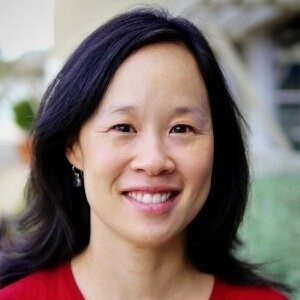
In most organizations, leaders are considered the experts. They come up with solutions to problems and ask their employees to implement them. However, this style of leadership no longer meets the complexity and fast-paced nature of today’s world. Instead, leaders must create learning environments that draw on the expertise of everyone in their organizations and value learning through experimentation and failure.
To do this, leaders must think and behave differently. In Transforming Educational Systems Toward Continuous Improvement: A Reflection Guide for K-12 Executive Leaders, Dixon and Palmer identify key dispositions and core practices of such leaders, who they identify as improvement leaders. First, improvement leaders have a growth mindset and see every individual in their organization as a valuable and contributing member with the capacity to learn and develop. Second, they are curious, humble and vulnerable; they recognize they do not have all the answers, are open to feedback and are willing to be wrong. In addition, these leaders are comfortable with uncertainty, recognizing that learning is a messy process where answers aren’t always readily available. They try out possible answers using scientific reasoning and rely on concrete evidence that something works before scaling it across the organization. Finally, improvement leaders are systems thinkers who see interconnections across different departments and lines of work.
Members of the System Improvement Leads Networked Improvement Community (SIL NIC) have begun to embrace this new approach to leadership. Supported by the SIL, teams of Special Education Local Plan Areas (SELPAs), County Offices of Education (COEs) and districts from across the state came together in September 2021 with the shared aim of accelerating learning for the 28,167 students with disabilities they serve. They began their journey focusing on improving the Individualized Education Program (IEP) process.
Teams of administrators, program specialists, and special education teachers from Shasta, San Luis Obispo, West Contra Costa, Sonoma, Irvine, and Clovis started by examining the IEP process in their local contexts. With guidance from the SIL coaches, the teams approached the investigation with a sense of curiosity and an open mind to what they might discover. They also engaged in various activities designed to help leaders see the system from different angles. They created process maps to illuminate how teachers and administrators enacted the IEP process and conducted empathy interviews with teachers, parents and students to hear their thoughts and feelings about IEPs. Finally, they mined data from individual IEP reports to illuminate potential sources of variation in IEP goal documentation and quality.
Through the systems investigation, teams developed both a clearer and more complicated view of the IEP process. It also highlighted for leaders how little they actually knew about the intricacies of their systems, an eye-opening and humbling experience. For example, the IEP process at individual sites varied wildly, leaving teachers to navigate it for themselves. As a result, what was considered a high-quality IEP goal also varied. In addition, some teams were shocked to discover the number of IEPs without documented goals when reviewing individual IEP reports. But more problematic was the fact that they had to review a sample of reports one by one since they couldn’t easily access this data from the Special Education Information System (SEIS). More importantly, it underscored the value and importance of systems-thinking in uncovering the contributing factors to the problem that were previously unseen.
Implementing UPK in your ELO-P Program
By Julie Boesch, Assistant Director, CCEE

Districts are seeking support on how to implement Universal Pre-Kindergarten and integrate this age level into Expanded Learning Programs, presenting new opportunities and challenges for districts to continue to learn and grow.
CCEE in collaboration with numerous partners including CDE, Department of Social Services, multiple County Offices of Education, non-profit organizations, and community partners, came together with a shared vision and specific tasks to create tools to communicate to the field in a cohesive, impactful, and practical way. This work included three teams:
Physical Spaces:
Objective: Identify existing resources to support the design and development of early learning spaces in expanded learning programs. This team has created a video as well as an environment checklist to support districts and those who support them. (These items will be released soon.)
Staff Capacity:
Objective: Provide a curated and manageable set of training opportunities and resources for Expanded Learning Opportunities Program staff and the System of Support for Expanded Learning to build their capacity to serve TK-K students and families.
This group has created a slide deck which can be used for informational meetings, staff training, and communication. It will also support an improved understanding of play-based learning among ELO, some background on UPK and ELO-P, the science of learning, foundational elements of learning through play, and connections between the ELO Quality Standards and the key elements of play-based learning. They have also created an infographic which specifically highlights the importance of play-based learning and all of the learning that is going on that may not be evident to the casual observer.
Education Code:
Objective: This group was tasked with Providing clear and concise information and guidance to the field interpreting Education Code related to health, safety, and licensing requirements.
This group has taken the Ed Code which has been emerging and created user friendly language and will be producing short videos as well as infographics and additional professional learning opportunities to both highlight and disseminate this information.
